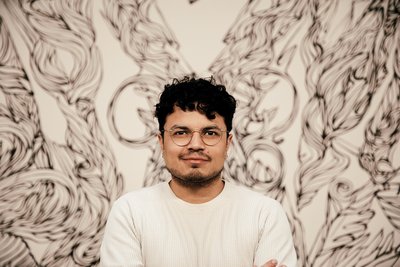Journalist

What do you see as the greatest potential of data journalism to make complex phenomena understandable and relatable for different kinds of audiences?
I think that the biggest potential currently met if you look into the changes in journalism is that we're analyzing complex phenomena and being more conclusive about complex issues that go far beyond events or cases. Journalism is a field so constrained by time and the ephemeral nature pace that news events have. Through data journalism methods, an opportunity to provide context and analyze long-time phenomena in their complexity. is being addressed. I also believe that data journalists have taken the leading role for the sector when it comes to innovating in using the latest technology tools to improve the profession. This is seen not only to research on issues but also to engage with information and audiences.
This has forced journalists to change too. In the past paradigm, you quoted someone else's conclusions but now and on we are seeing journalists being conclusive about the results of their own investigative reports, with and ability to claim and report on specific issues and original research.
We see journalists working with the latest tools and technology available to improve the way they find, understand, and explain patterns and wrong-doings in large datasets or thousands of documents. I believe that our next aim should be to not fall into one of the traps that a data-aware world supposes: limiting our view to only the world a sample describes. We have to actively use data to be more inclusive in our reporting and count those who are left behind or traditionally ignored. If data has been a form of exclusion, data journalism has the potential to actively work to surpass that gap in our understanding of the world.
How do infrastructures matter for citizens?
I believe that by mediating our engagement with the world, infrastructures in a way "set the table" for different aspects of our lives. Caring about them is not only about thinking about your current situation but making long-lasting solutions to the problems we face: a good infrastructure allows you to engage and thrive in a setting. So this broader view of infrastructure: seeing media, technology, open data, and other similar spaces in which we can engage with our world and participate as active citizens is needed. You need a mediating space that offers a solution and interconnects those worlds, enabling you to move around them and use them for your work. In a world so mediated by the datafication of every aspect of our lives, infrastructures have an important role in habilitating or not what we do, see or even are. For example, in my research around inclusivity of representation of people's gender identity or sexual orientation, you see that the violence towards LGBT+ people is not seen as a phenomenon if the infrastructure for reporting or documenting violence does not allow those categories to "exist" in their system. An inclusive infrastructure, "allows" the existence of these factors in the analysis of the attacks. Datafication can be an exclusive process, so designing or thinking creatively and actively about these mediating spaces can help journalists and citizens to engage better in their societies.
How should knowledge about infrastructures be communicated and what role can journalists, researchers or public officials play?
I believe that one of our guiding principles in this field is openness. The openness of the data, of its implications, of the stories, the government, their spending and decision-making, the findings of academic research, and the production of science. I believe that journalists have an important role in amplifying and bridging the usual gap that exists between different knowledge. We tend to talk about media as "bridges" and I believe infraestructures also do that.
When communicating knowledge about infrastructure, we should also aim at discussing the tangible and intangible, the technical, the ethical, and also the poetic elements of it. We have to be able to, when we see a structure, connect it to the ideas that represents and the philosophy behind that choice. For example, when communicating knowledge about data we reached some spaces by discussing ethics and others by showing how data helps you investigate, but when we created the data art exhibits, people noticed that there were poetic elements to it, philosophical dilemmas, and deepness of thought. This area stopped being just a cerebral or rational element in our lives, and we saw how it was also an emotional part of our dataficated world.